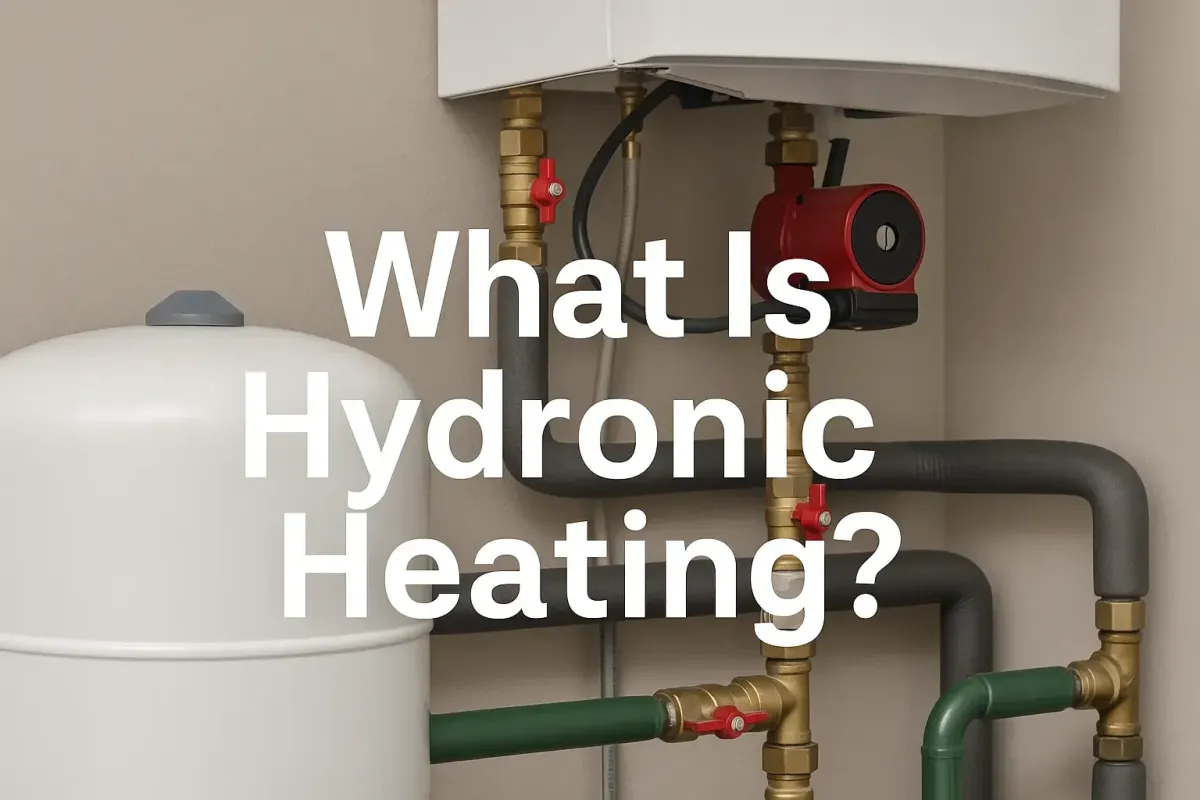
What Is Hydronic Heating? | Trav's Plumbing & HVAC LTD.
If you’ve ever walked across a warm floor on a freezing Manitoba morning, chances are you’ve experienced hydronic heating.
Simply put, hydronic heating is a system that uses hot water instead of air to keep your home comfortable.
The water is heated by a boiler, circulated through pipes, and delivered to different parts of your home through radiant floors, baseboards, or radiators.
The result is even, consistent heat that doesn’t dry out the air or blow dust around.
Let's check out everything you need to know!
How Does a Hydronic Heating System Work?
Here’s the simple breakdown:
A boiler heats water to the right temperature.
That hot water is pumped through a closed loop of pipes.
The heat transfers into your floors, baseboards, or radiators.
The water then cycles back to the boiler to be reheated.
Because it works as a sealed system, the same water keeps circulating.
This makes hydronic heating efficient and reliable without the constant need for new energy input.
Types of Hydronic Heating Systems
Not every hydronic heating system looks the same.
Depending on your home, you might see:
Radiant floor heating – Tubes run under the flooring, gently warming the room from the ground up.
Baseboard heaters – Slim, discreet units that radiate heat along the wall.
Radiators – A more traditional option that warms the air and surrounding objects.
Combination systems – Boilers that provide both heating and hot water for the home.
Hydronic Heating vs Forced Air
Many homes in Manitoba rely on forced air, but there are some big differences:
Air quality – Hydronic heating doesn’t blow dust, allergens, or dry air through ducts.
Comfort – Instead of hot and cold spots, you get consistent, even warmth.
Noise – No loud furnace fans, just quiet comfort.
Efficiency – Water holds heat better than air, which can save energy in the long run.
For Manitoba winters, hydronic heating often provides more consistent warmth and long-term energy savings, while forced air can be cheaper upfront and heats faster.
The right choice depends on your comfort goals and budget
Benefits of Hydronic Heating
Hydronic heating is becoming more popular with homeowners, and here’s why:
Energy efficiency – Water is a more effective heat transfer medium.
Even heat distribution – No cold drafts or hot blasts.
Better for allergies – No ductwork means less dust.
Quiet operation – No noisy fans or blowers.
Long lifespan – Systems are durable and low-maintenance.
Potential Drawbacks of Hydronic Heating
Like any system, there are trade-offs:
Upfront cost – Installation can be higher compared to a standard furnace.
Slower warm-up time – It doesn’t heat as quickly as forced air.
Requires a boiler – Maintenance for the boiler is key to long-term performance.
Is Hydronic Heating Right for Manitoba Homes?
With long, cold winters in Manitoba, hydronic heating can be an excellent choice.
It keeps homes consistently warm, helps lower energy costs, and avoids the dryness that forced-air systems cause.
And if you’re building a new home or doing a major renovation, radiant floor heating is a luxury that pays off in comfort every single day.
Hydronic Heating Installation in Manitoba
If you’re curious about what a hydronic heating system could do for your home, we can help.
At Trav’s Plumbing & HVAC LTD, we install, repair, and service hydronic heating systems across Southern Manitoba.
Whether you’re interested in radiant floors or upgrading an older boiler, our team makes the process simple.
Ready to enjoy a warmer, more efficient home? Contact Trav’s Plumbing & HVAC today to get started.
FAQs About Hydronic Heating
What is a hydronic heating system?
It’s a heating system that uses hot water instead of air to distribute warmth through floors, radiators, or baseboards.
Is hydronic heating more efficient than forced air?
Yes, water transfers heat better than air, which often makes hydronic systems more energy-efficient.
What are the pros and cons of hydronic heating?
Pros: energy efficient, quiet, even heat, better air quality. Cons: higher upfront cost, slower heat-up time.
How much does hydronic heating cost?
Costs vary depending on system size, installation complexity, and whether it’s radiant floors or baseboards. It’s usually more upfront but pays off in comfort and efficiency.
Can hydronic heating be installed in an existing home?
Yes, but it’s easier in new builds or major renovations. Retrofitting is possible depending on your current setup.
